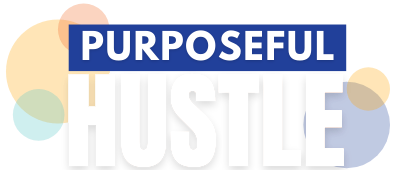Workplaces are filled with jargon and catchphrases. In recent years, we’ve been inundated with “synergy” and “thinking outside the box,” while being asked to “pick the low-hanging fruit.” Those phrases might be overused (or even annoying!), but they’re harmless enough.
But sometimes a phrase is not harmless. Sometimes it belittles certain groups of people, whether the speaker realizes it or not.
We all have a responsibility when it comes to language. Just like when we were little kids learning about “inappropriate words” we shouldn’t say at school, so, too, must we have the humility to unlearn some of the harmful phrases that have crept into workplace lexicon over the years.
If we do not make an effort to banish these phrases from our vocabulary, we run the risk of marginalizing others. These turns of phrase can be viewed as micro-aggressions (defined as statements or actions that––while sometimes well-intended––can be offensive because of the subtle ways they denigrate others), and these micro-aggressions can add up quickly and create a hostile work environment for all involved.
To start creating a more welcoming and inclusive environment, it’s important to banish the following 8+ phrases from your speech. Keep in mind, this is not an exhaustive list, and if you’re unsure about a certain term or phrase, it’s best to look it up to see if it has a problematic connotation.
Problem Phrase #1: “Crack the whip” or “Slave driver”
Why it’s problematic: This phrase trivializes and minimizes the horrific history of slavery and oppression of African Americans. It casually brings up the trauma that thousands of Black people have faced in a way that’s meant to seem light or even funny. Believe me, neither of these phrases are funny.
Alternative #1: “I have high expectations” or “I’m going to expect a full effort from everyone”
Problem Phrase #2: “Circle the wagons”
Why it’s problematic: This phrase has its roots in American history where white settlers would use wagons to form a defensive ring against Native American attacks. It reduces a centuries-long systematic oppression of Native Americans to just a phrase.
Alternative #2: “Let’s rally together” or “We need to come together on this”
Problem Phrase #3: “You’re crazy” or “That’s psycho”
Why it’s problematic: Not only is this phrase dismissive, it’s ableist. This language implies that people who suffer from mental illness or disabilities are inherently “crazy” or “psycho,” and their opinion or point of view doesn’t matter.
Alternative #3: “You have an unorthodox approach” or “That’s an unexpected suggestion”
Problem Phrase #4: “My tribe”
Why it’s problematic: You’re a workplace; you might have teams, squads, or committees, but definitely not “tribes.” A tribe usually refers to a group of Native Americans, or other bands of indigenous people, and has colonial origins. While we’re at it, let’s also strike other phrases that trivialize Native peoples such as the casual use of “spirit animal,” holding a “powwow,” or calling someone the “low man on the totem pole.” All of these phrases are linked to sacred actions or practices of Native Americans and should not be tossed around lightly.
Alternative #4: “My team” or “My colleagues” or “My people”
Problem Phrase #5: “You’re a guru”
Why it’s problematic: This word has been taken from Hinduism and turned into a cliché. It belittles the sacredness of a traditional title which takes years of study and dedication to achieve, and reduces it to a trivial, often nonsensical, phrase.
Alternative #5: “You’re an expert” or “You’re a superstar”
Problem Phrase #6: “Let’s not get hysterical”
Why it’s problematic: The word “hysterical” is Greek in origin (hystera) and means “uterus.” Therefore, “hysteria” was considered a “woman’s disease.” Throughout the years, women have been criticized as being too emotional, and have been drugged, put through shock therapy, or worse when they were thought to be too hysterical. It’s a truly problematic phrase that can swiftly invalidate your female coworkers.
Alternative #6: “Let’s talk it through calmly” or “Let’s discuss this further”
Problem Phrase #7: “They sold us down the river”
Why it’s problematic: This originates from the slave trade in the United States. It was used to describe how the slave masters would literally sell enslaved peoples down the river in order to get more money for them. It’s never acceptable to bring up this dark past and use it in a trivial manner.
Alternative #7: “They let us down” or “They didn’t follow through”
Problem Phrase #8: “I’m feeling ADD today” or “You’re so OCD”
Why it’s problematic: Attention Deficit Disorder (ADD) and Obsessive Compulsive Disorder (OCD) are real mental illnesses and should not be referred to in such a casual and careless manner. Besides simply being insensitive, using these words in this way can prevent people from really understanding what these conditions are and create an atmosphere that denigrates those who actually suffer from it.
Alternative #8: “I’m feeling distracted” or “You’re so detail-oriented”
--
At the end of the day, language is incredibly powerful and doesn’t always carry the same meaning for everyone. To make sure you are creating an inclusive and welcoming environment, it’s important to know and understand the implications of the words and phrases you use. If you’re unsure about the origin of a phrase or if it might be offensive to someone, it’s best to avoid it. Let’s work together to create workplaces that are not only free of oppressive phrases, but also foster a sense of belonging and acceptance for all.








Leave a Comment